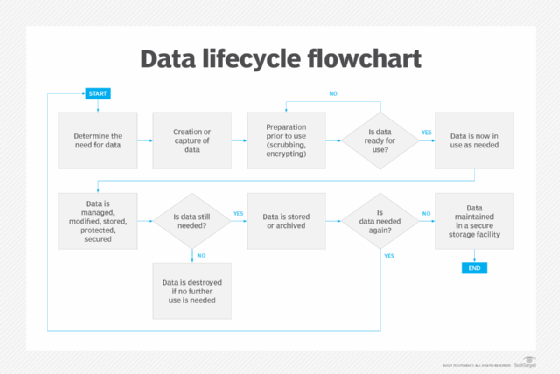Data Destruction Solutions: A Key Element in Your Cyber Security Technique
The Essential Nature of Information Devastation in Upholding Computer Security Services and Protecting Versus Unauthorized Access
In an age where data breaches and identity theft are increasingly widespread, the importance of efficient data damage can not be overstated. Organizations must acknowledge that the failure to correctly deal with sensitive info positions not only legal and monetary risks but additionally a prospective erosion of client depend on. Different techniques, from data cleaning to physical destruction, function as vital safeguards against unapproved accessibility. Nonetheless, comprehending the effects of data destruction techniques and compliance with policies elevates necessary questions concerning the adequacy of existing methods and their long-lasting viability despite progressing hazards.
Importance of Information Damage
In a progressively digital globe, the value of information devastation can not be overemphasized. As organizations generate huge quantities of sensitive details, the potential consequences of failing to correctly dispose and take care of of that data end up being progressively severe. Data breaches, identity theft, and company espionage position substantial risks, emphasizing the requirement of reliable data damage practices.

In addition, as technology develops, so as well do the techniques by which malicious stars look for to exploit sensitive info. Organizations must continue to be positive and alert in their information devastation methods to protect versus these developing threats. By focusing on data damage, companies not just secure their possessions but also foster trust fund among clients and stakeholders, demonstrating a dedication to responsible data management and safety methods.
Techniques of Effective Data Devastation
To make certain the irreparable and full damage of delicate data, companies can employ a range of reliable methods customized to their specific demands. One of the most usual methods is information wiping, which involves utilizing specialized software to overwrite existing data several times, making recuperation practically difficult. This is particularly helpful for hard disk drives and solid-state drives, where conventional deletion techniques are insufficient.
One more efficient technique is degaussing, which makes use of solid electromagnetic fields to interrupt the magnetic domains on storage media, providing the information irretrievable. This technique is especially matched for magnetic storage tools, such as tape drives and tough disks.
Physical devastation is also a practical choice, including the shredding, squashing, or incineration of storage tools. This method guarantees that data can not be recovered, making it optimal for organizations dealing with very sensitive information.

Conformity With Data Security Laws
Organizations need to not just concentrate on reliable data damage techniques however also make sure compliance with data defense regulations that govern exactly how sensitive info is managed and thrown away. Following these laws is vital for maintaining and safeguarding individual information client count on. Laws such as the General Information Protection Regulation (GDPR) in the European Union and the Medical Insurance Mobility and Accountability Act (HIPAA) in the United States impose rigorous standards on information administration, which include needs for the secure disposal of delicate information.
To achieve compliance, companies must carry out comprehensive information damage policies that align with these lawful frameworks. This consists of determining information that needs destruction, developing methods for safe and secure methodsâEUR" such as shredding physical media or making use of software that meets market requirements for information wipingâEUR" and keeping in-depth records of destruction tasks. Routine audits needs to be performed to ensure adherence to these plans and to identify any prospective locations for improvement.
Failure to adhere to data protection guidelines can lead to considerable lawful ramifications, consisting of significant penalties and click over here now damage to an organization's online reputation. For that reason, incorporating conformity right into information damage techniques is not just a legal commitment yet likewise a crucial element of a durable details security method.
Repercussions of Poor Information Handling
Poor data handling can lead to extreme consequences that expand past prompt functional troubles. Organizations might encounter substantial financial losses due to data breaches, which often lead to pricey removal efforts, legal charges, and regulatory fines. These economic effects can hinder and strain resources development, eventually impacting an organization's bottom line.
Additionally, bad information handling can badly harm a company's online reputation. Clients, stakeholders, and partners may lose rely on an entity that stops working to safeguard sensitive info, bring about lowered customer commitment and possible loss of organization chances. This erosion of trust can take years to restore, if it can be recovered at all.
Furthermore, companies might encounter legal implications occurring from non-compliance with information security policies. Such infractions might lead to examinations and penalties, compounding the monetary burden and additional tarnishing the company's image.
In the realm of cybersecurity, inadequate information monitoring practices can produce susceptabilities that make systems more prone to unapproved gain access to and cyberattacks. Inevitably, these consequences emphasize the vital importance of carrying out robust data handling treatments to safeguard delicate information and keep business stability.
Finest Practices for Secure Data Disposal


Firstly, information ought to be identified according to its level of sensitivity. Delicate information calls for a lot more rigorous disposal techniques, such as shredding physical documents and using sophisticated software site here program for digital data wiping. Using qualified information destruction services makes certain conformity with industry laws and criteria.
Secondly, organizations need to apply an information disposal plan that mandates regular audits. This plan needs to lay out the treatments for information retention and devastation, making certain that outdated information is dealt with without delay and securely. Educating workers on these procedures is necessary to fostering a culture of security recognition.
Lastly, preserving thorough records of disposed data boosts responsibility and supplies a clear audit trail. This documentation needs to include from this source the type of data ruined, the approach used, and the day of disposal.
Final Thought
Finally, the crucial of effective data destruction is apparent in its duty in boosting computer system safety and security solutions and mitigating unauthorized accessibility risks. Adopting durable approaches such as information cleaning, degaussing, and physical devastation, alongside compliance with laws like GDPR and HIPAA, is necessary for securing sensitive details. Overlooking appropriate data disposal practices can bring about serious consequences, including information violations and lawful repercussions. Applying best techniques in protected information disposal inevitably fortifies business honesty and client trust.
In an age where information violations and identification theft are significantly widespread, the importance of reliable data devastation can not be overstated. data destruction. Data breaches, identification burglary, and corporate espionage present substantial threats, underscoring the need of reliable information devastation methods
Conformity with regulations such as GDPR and HIPAA requireds that organizations execute rigid data security steps, including the safe destruction of data at the end of its lifecycle.
By focusing on information damage, companies not just shield their assets but also foster trust amongst clients and stakeholders, demonstrating a dedication to accountable information management and security methods.
Organizations have to not only focus on reliable information devastation methods but additionally make sure compliance with data protection policies that govern just how delicate information is taken care of and disposed of.